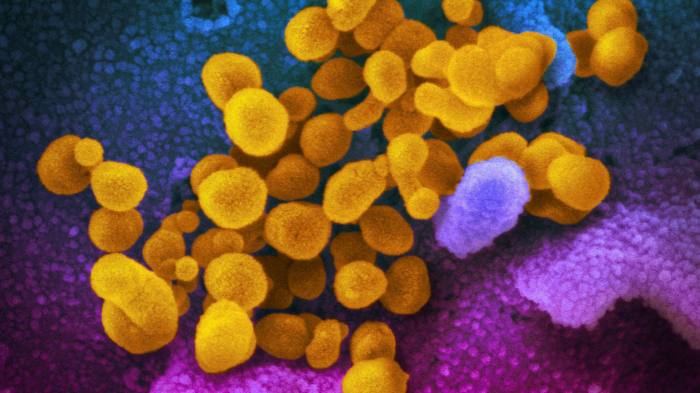
Merck adopts ‘error catastrophe’ coronavirus drug
Pill that aims to force virus to mutate to self-destruction set for extensive clinical trials in US and UK
by Clive CooksonMerck is launching its hunt for a coronavirus treatment with a pill developed by US academics that is designed to force an “error catastrophe” on viruses.
The compound, which is known as EIDD-2801, works by planting molecules in a virus’s RNA genetic material that then trigger a cascade of mutations, which ultimately kill it.
The drug completed its first safety trial in about 100 human volunteers in the UK and is set to begin extensive clinical testing in the US and UK early in June.
Merck, the giant US drug group, said this week that it would develop the drug in collaboration with Ridgeback Biotherapeutics, a small Florida company that had licensed rights to the drug from its discoverers at Emory University in Atlanta.
EIDD-2801 resembles the chemicals with which replicating viruses build their genes. “When the virus incorporates molecules from the drug into its RNA, there is a lethal accumulation of mistakes — an error catastrophe,” said Prof Ralph Baric, a coronavirus expert at the University of North Carolina who has been working for several years with colleagues at Emory to develop EIDD-2801.
It is in the same class of drug as Gilead Sciences’ remdesivir, the antiviral that has so far shown most promise for treating Covid-19 patients in trials, but they work in a different way, said Roger Perlmutter, Merck’s head of research.
“Remdesivir blocks an enzyme that the virus needs to replicate,” he said. “EIDD-2801 causes the enzyme to make mistakes and these errors lead to a catastrophic mutational burden.”
Remdesivir has to be injected, like many other proposed Covid-19 treatments, but EIDD-2801 is taken by mouth.
“It can be given earlier in the disease process, obviously, than a medicine that has to be used by IV injection,” said Ken Frazier, Merck chief executive. “Our goal is to find something that can be used early.”
Recommended
Coronavirus: free to read
Scientists vs politicians: the reality check for ‘warp speed’ vaccine research | Free to read
If EIDD-2801 turns out to be safe and effective, it might nonetheless be used in combination with remdesivir, said Dr Perlmutter. Experience with other viruses, such as HIV, shows that medical cocktails are more powerful than individual drugs and less likely to drive the evolution of resistant strains.
A potential problem with EIDD-2801 is that tests on bacteria show that it could cause mutations in the DNA of human patients — though Dr Perlmutter said he did not expect this to be a safety issue in practice and noted that other so-called mutagenic drugs had reached the market.
“You would prefer not to bring forward a drug that is positive on the Ames test [for mutagenicity] but it’s not necessarily a showstopper,” he said.
“We anticipate that [EIDD-] 2801 will be used in a very short course of perhaps five days,” he said. “Exposure over that period is not likely to be a problem.”
While human clinical trials are in progress, further studies will be carried out in animals and cell cultures to confirm that there is no risk of EIDD-2801 causing cancer in patients.
Following successful results from the phase-one safety trial in the UK, Ridgeback and Merck will test EIDD-2801 against a placebo on hundreds of Covid-19 patients, beginning as soon as next week.
If the disease has died down in the US and UK, clinical trials could be carried out in places such as Brazil where there are likely still to be many cases.
Additional reporting by David Crow in New York